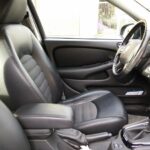
Ever wondered how effective those automobile breathalyzer for Car really are? Have you ever felt a tinge of worry concerning the accuracy of these devices, which play such a crucial role in ensuring road safety? In this post, we will delve into these concerns. First, we’ll learn the basics of breath analyzers in cars, their modus operandi, and most importantly, their reliability.
Driving under the influence of alcohol is a grave risk to yourself, your passengers, and other innocent road users. Breathalyzer for car, or ignition interlock devices (IIDs), are designed to combat this issue. These devices demand a breath sample from the driver before the car can be started. But how certain can we be of their accuracy? Are there factors that could potentially skew the results?
Welcome to a comprehensive exploration into the realm of automotive breathalyzers. This post aims to assuage your doubts, provide insights into breathalyzer technology, and guide you to make informed decisions related to breathalyzer for car. Onward we go!
Understanding the Science Behind Breathalyzer for car
The first step towards comprehending the accuracy of breathalyzer for car is understanding the science they’re built on. Personal breathalyzers or IIDs use fuel cell sensor technology. When alcohol vapor is passed over the fuel cell, it produces a chemical reaction. This reaction generates an electrical current, which is measured to deliver an estimate of the blood alcohol concentration (BAC).
However, the question arises about the precision of breath-to-blood ratios. BAC estimation, it is important to note, can be influenced by numerous factors, such as body temperature, breathing rate, and even individual metabolic variations. Thus, while breathalyzer for car tests provide a good estimate, it is not an exact science.
That being said, contemporary breathalyzer technology has improved significantly over years. While they may not achieve absolute accuracy all the time, their performance is reliable enough to be employed globally as a powerful tool combating drunk driving.
Pros and Cons Breathalyzer for car
Just like any technology, car breathalyzers have their advantages and disadvantages. Weighing these pros and cons can help you make a well-informed decision about investing in this safety tool.
Pros include the obvious—keeping drunk individuals off the wheel. This contributes not only to personal safety but also to the safety of society at large. Furthermore, these devices often serve as wake-up calls to individuals with alcohol-related issues, encouraging a path towards recovery.
However, there are potential cons. Breathalyzers, if not maintained properly, can malfunction or produce false positives due to residual alcohol content. Also, there might be an element of inconvenience if other family members or friends are driving the car. In some vehicles, repeated testing is required while driving, which might lead to distractions on the road.
Alternatives to Breathalyzer for car Tests
As we look at the big picture, it’s important to discuss alternatives to breathalyzer for car tests. So, what other technologies can potentially enhance road safety?
High on the list is the Driver Alcohol Detection System for Safety, or DADSS. This system uses touch-based or breath-based mechanisms to detect BAC and disable vehicle ignition if a driver is over the legal limit. Another alternative is advanced driver-assistance systems (ADAS) that enhance safety and driving, including features like emergency braking systems, cruise control adjusted for traffic conditions, and lane departure warning systems.
However, while these technologies hold promise for future safety measures, we cannot overlook their current limitations. High costs, varying degrees of effectiveness, and a lack of widespread implementation stand as primary challenges. For the immediate present, breathalyzers remain a crucial tool in the fight against drunk driving.
Conclusion
To conclude, the science behind breathalyzer for car, although not quite perfect, is highly reliable. To reiterate, these devices’ function based on fuel cell sensor technology which, although not infallible, delivers consistent results the cornerstones of any public safety tool.
The pros and cons explored reflect the reality of breathalyzers – there are undeniable benefits and inevitable drawbacks. However, with an objective of marquee importance i.e., road safety, the choice leans towards accepting the occasional inconvenience in favour of reducing the incidents of drunk driving. As for future prospects, exciting new technologies like DADSS and advanced driver-assistance systems hold great promise. However, they are still in developmental or preliminary stages of implementation. Until these become standard fixtures in breathalyzer for car continue to be our steadfast allies, preventing drunk driving, protecting us, our loved ones, and the society. The key takeaway here is to embrace and respect the potential of breathalyzer for car, even while acknowledging the search for perfection continues.








